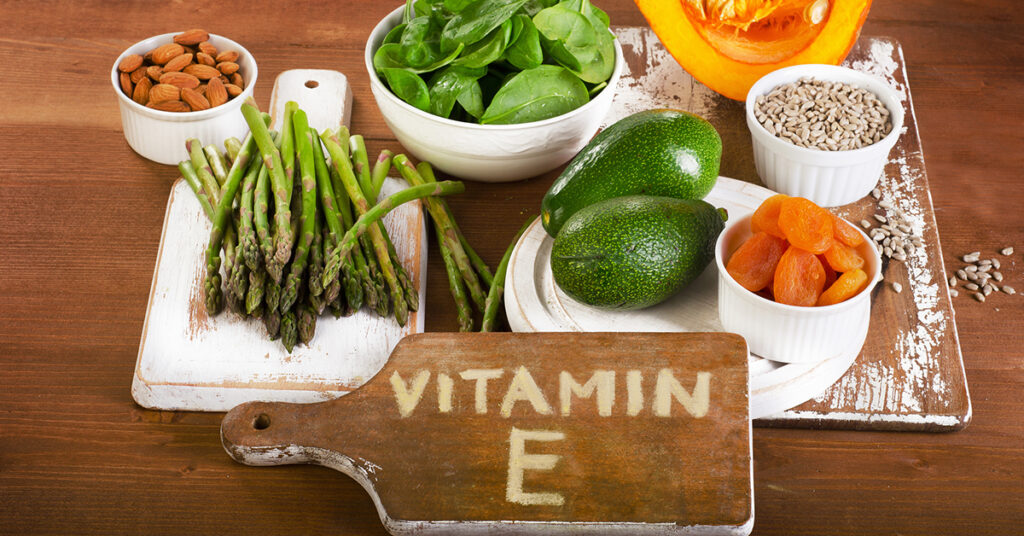Vitamin E is a crucial nutrient that plays a significant role in maintaining overall health. It acts as a powerful antioxidant, helping to protect cells from damage, supports immune function, and promotes healthy skin and eyes. Incorporating Vitamin E-rich foods into your diet is an excellent way to ensure you’re meeting your daily requirements. Here’s a comprehensive guide on how to boost your Vitamin E intake naturally.
Understanding Vitamin E
Vitamin E is a fat-soluble vitamin with several forms, but alpha-tocopherol is the most biologically active in humans. It’s found in various foods and can also be taken as a dietary supplement. The recommended daily allowance (RDA) for Vitamin E is 15 mg (22.4 IU) for adults.
Benefits of Vitamin E
Vitamin E offers numerous health benefits, including:
- Antioxidant Protection: Helps neutralize free radicals.
- Skin Health: Supports healthy skin by protecting it from UV damage.
- Heart Health: May help prevent cardiovascular diseases.
- Immune Function: Enhances immune response.
- Eye Health: Protects eyes from age-related macular degeneration.
Sources of Vitamin E
Nuts and Seeds
Nuts and seeds are among the richest sources of Vitamin E. Incorporate these into your daily diet to boost your intake:
- Almonds
- Sunflower seeds
- Hazelnuts
- Pine nuts
Vegetable Oils
Healthy oils are another great source of Vitamin E. Use these oils for cooking or as dressings for salads:
- Sunflower oil
- Wheat germ oil
- Olive oil
- Soybean oil
Green Leafy Vegetables
Certain greens are packed with Vitamin E. Include these in your salads or cooked meals:
- Spinach
- Swiss chard
- Kale
Fortified Foods
Some foods are fortified with Vitamin E to enhance their nutritional value:
- Fortified cereals
- Fortified dairy alternatives (e.g., almond milk)
Cooking Methods to Preserve Vitamin E
Cooking methods can affect the Vitamin E content in foods. Here are some tips to retain maximum nutrients:
- Steaming: Helps preserve Vitamin E in vegetables.
- Light Cooking: Avoid prolonged high-heat cooking, which can degrade nutrients.
- Minimal Processing: Opt for minimally processed foods to retain natural Vitamin E content.
FAQs About Boosting Vitamin E Intake
How much Vitamin E do I need daily?
The recommended daily allowance (RDA) for adults is 15 mg (22.4 IU) of Vitamin E.
What are the symptoms of Vitamin E deficiency?
Symptoms may include muscle weakness, vision problems, and impaired immune function.
Can I get enough Vitamin E from food alone?
Yes, a balanced diet rich in Vitamin E sources can meet your daily requirements.
Are Vitamin E supplements necessary?
For most healthy individuals, a balanced diet should provide sufficient Vitamin E. Supplements may be recommended for those with specific health conditions.
Does cooking affect the Vitamin E content in foods?
Yes, prolonged cooking at high temperatures can reduce the Vitamin E content. Opt for gentler cooking methods.
Are there any risks associated with high Vitamin E intake?
Excessive Vitamin E intake from supplements may increase the risk of bleeding in some individuals. Stick to recommended doses.
Can Vitamin E improve skin health?
Yes, Vitamin E is known for its antioxidant properties, which can help protect skin from damage caused by UV rays and free radicals.
Which foods are the best sources of Vitamin E?
Nuts, seeds, vegetable oils, and green leafy vegetables are excellent sources of Vitamin E.
Is Vitamin E beneficial for heart health?
Vitamin E may help prevent cardiovascular diseases by protecting against oxidative stress.
Can Vitamin E supplements interact with medications?
Yes, Vitamin E supplements can interact with certain medications, especially blood thinners. Consult your healthcare provider before starting supplements.
- Xela Rederm Skin Booster Treatments Near Shackleford, Surrey - January 14, 2025
- Traptox Aka Trapezius Botox Treatment Near Chobham, Surrey - January 11, 2025
- Skin Injectables Near Milford, Surrey - January 10, 2025

